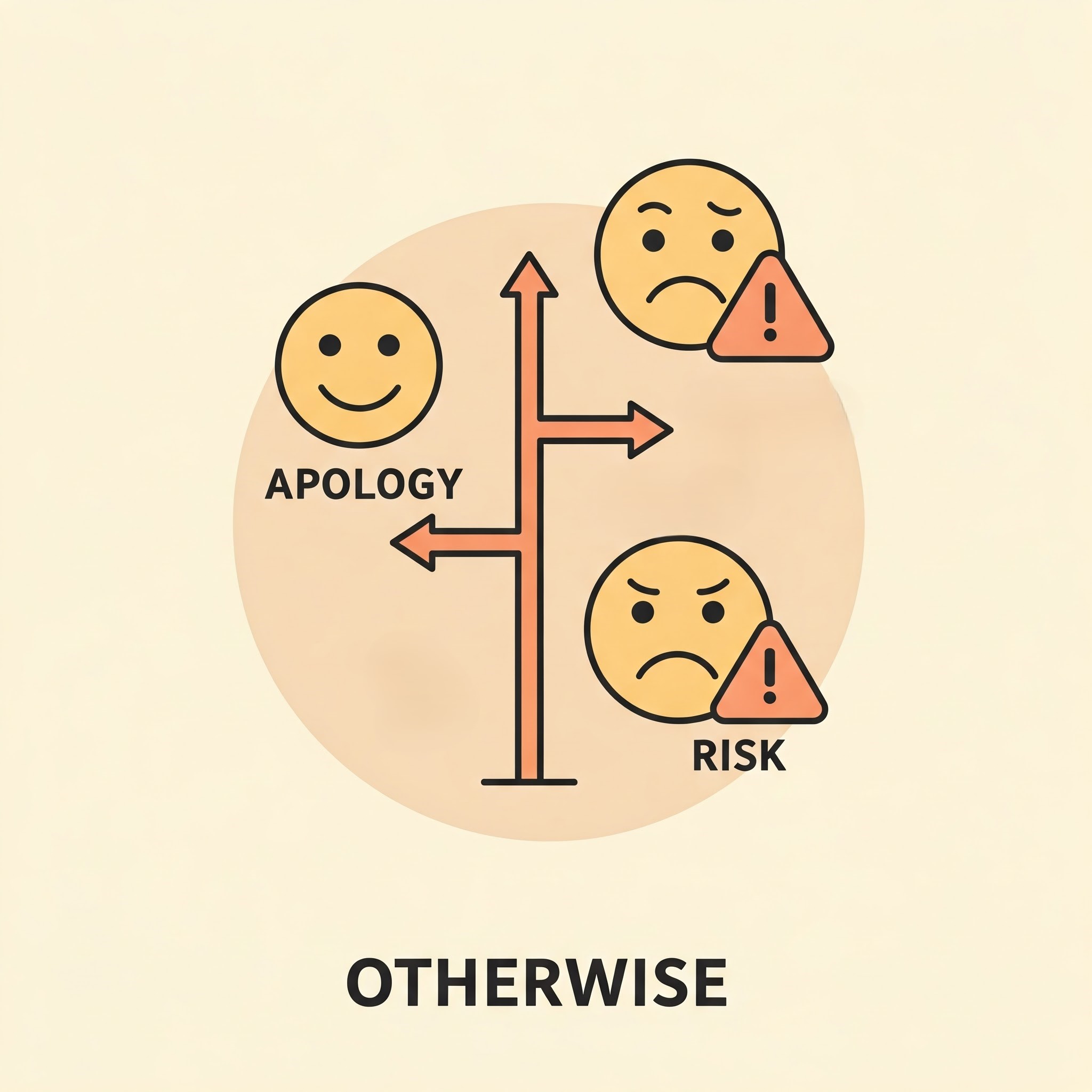Otherwise
Definition
The term "otherwise" is used to indicate a different condition, situation, or result. It can function as an adverb, conjunction, or adjective, depending on the context, and often implies an alternative or contrasting possibility.
Parts of Speech
- Adverb
- Conjunction
- Adjective
Pronunciation
American English
- IPA Pronunciation: /ˈʌð.ɚ.waɪz/
- Respelling: UHTH-er-wahyz
British English
- IPA Pronunciation: /ˈʌð.ə.waɪz/
- Respelling: UHTH-uh-wahyz
Etymology
The word "otherwise" originates from Old English "oþer wisan," meaning "in another manner," where "oþer" translates to "other" and "wisan" means "manner" or "way." It has been in continuous use since Middle English to describe alternative states or conditions.
Derivatives
- Otherwise-minded (adjective)
- Otherwiseness (noun)
- Otherworldly (adjective, related root)
- In other ways (phrase)
- Other-sided (adjective, rare)
Synonyms
- Alternatively
- Contrarily
- Differently
Antonyms
- Similarly
- Likewise
- Consistently
Usage
The term "otherwise" is frequently used in contexts that involve conditions, alternatives, or contrasts. For example: "She is kind; otherwise, she wouldn’t have helped," or "The room is small but otherwise comfortable."
Related Terms
- Alternative: Referring to another possibility.
- Contrary: Opposite in nature or meaning.
- Different: Distinct or separate from others.
Detailed Definitions
Adverb
- In a different way or manner: Indicates an alternative approach or method.
- Example: "He must apologize; otherwise, he risks losing their trust."
- In other respects: Describes a different aspect or condition.
- Example: "The house is old but otherwise well-maintained."
Conjunction
- If not; or else: Indicates the consequence of not following a certain action or condition.
- Example: "We need to leave now; otherwise, we will miss the train."
Adjective
- Being different or opposite: Used to describe an alternative or contrasting condition.
- Example: "The evidence suggests an otherwise conclusion."
otherwise



🇨🇳 Mandarin
- 否则 (fǒuzé) - Otherwise
- IPA: /fou˨˩˦t͡sɤ˥˩/
- English respelling: fou-ze
- 要不然 (yào bù rán) - Otherwise, or else
- IPA: /i̯au˥˩ pu˧˥ ʐan˨˩˦/
- English respelling: yao bu ran
🇮🇳 Hindi
- अन्यथा (Anyatha) - Otherwise
- IPA: /əɳjət̪ʰaː/
- English respelling: anya-tha
- वरना (Varna) - Otherwise, else
- IPA: /ʋəɾnaː/
- English respelling: var-na
🇪🇸 Spanish
- De lo contrario - Otherwise
- IPA: /de lo konˈtrarjo/
- English respelling: de lo kon-trar-yo
- Si no - Otherwise, if not
- IPA: /si no/
- English respelling: si no
🇫🇷 French
- Sinon - Otherwise
- IPA: /si.nɔ̃/
- English respelling: si-non
- Autrement - Otherwise, differently
- IPA: /otʁəmɑ̃/
- English respelling: o-tre-man
🇸🇦 Modern Standard Arabic
- وإلا (Wa 'iilaa) - Otherwise
- IPA: /wa ʔi.laː/
- English respelling: wa i-laa
- غير ذلك (Ghayr dhalik) - Otherwise, apart from that
- IPA: /ɣajr ðaːlik/
- English respelling: ghayr tha-lik
🇧🇩 Bengali
- নতুন (Natun) - Otherwise
- IPA: /natun/
- English respelling: na-tun
- অন্যথায় (Onyathay) - Otherwise, else
- IPA: /ɔnjɔt̪ʰaj/
- English respelling: on-yo-thay
🇷🇺 Russian
- Иначе (Inache) - Otherwise
- IPA: /ɪˈnat͡ɕe/
- English respelling: i-na-che
- В противном случае (V protivnom sluchaye) - Otherwise, in the opposite case
- IPA: /v prɐˈtʲivnəm ˈsɫʊt͡ɕɪɪ̯/
- English respelling: v pro-tiv-nom slu-chai
🇵🇹 Portuguese
- Caso contrário - Otherwise
- IPA: /ˈkazu kõˈtɾaɾju/
- English respelling: ka-zu kon-tra-riu
- Senão - Otherwise, if not
- IPA: /seˈnɐ̃w/
- English respelling: se-nawn
🇮🇩 Indonesian
- Jika tidak - Otherwise, if not
- IPA: /d͡ʒika tidak/
- English respelling: ji-ka ti-dak
- Lainnya - Otherwise, other
- IPA: /lai̯ɲa/
- English respelling: lain-nya
🇩🇪 German
- Sonst - Otherwise
- IPA: /zɔnst/
- English respelling: zonst
- Andernfalls - Otherwise, else
- IPA: /ˈandɐnˌfalz/
- English respelling: ander-fals
🇯🇵 Japanese
- さもなければ (Samonakereba) - Otherwise, if not so
- IPA: /sa̠mo̞na̠ke̞ɾeba̠/
- English respelling: sa-mo-na-ke-re-ba
- そうでなければ (Sōdenakereba) - Otherwise, if not that way
- IPA: /so̞ːde̞na̠ke̞ɾeba̠/
- English respelling: so-de-na-ke-re-ba
🇻🇳 Vietnamese
- Nếu không - Otherwise, if not
- IPA: /ɲəːw kʰawŋm˧ˀ˨ʔ/
- English respelling: nyeuw khowm
- Ngược lại - Otherwise, contrary
- IPA: /ŋwəːk˧˩ laːj˧/
- English respelling: ngwuhk lai
🇰🇷 Korean
- 그렇지 않으면 (Geureohji anheumyeon) - Otherwise, if it's not so
- IPA: /ɡɯɾʌ̹tɕi anɦʌ̹mjʌ̹n/
- English respelling: gu-roh-ji an-heu-myeon
- 아니면 (Animyeon) - Otherwise, if not
- IPA: /ani.mjʌn/
- English respelling: a-ni-myeon
🇹🇷 Turkish
- Aksi takdirde - Otherwise
- IPA: /ˈakˌsi takˈdiɾde/
- English respelling: ak-si tak-dir-de
- Yoksa - Otherwise, or else
- IPA: /joksa/
- English respelling: yok-sa
🇵🇰 Urdu
- ورنہ (Warna) - Otherwise
- IPA: /ʋəɾnaː/
- English respelling: var-na
- اگر نہیں تو (Agar nahi to) - Otherwise, if not
- IPA: /əɡər nɑːɦiː toʊ/
- English respelling: agar na-hi to





